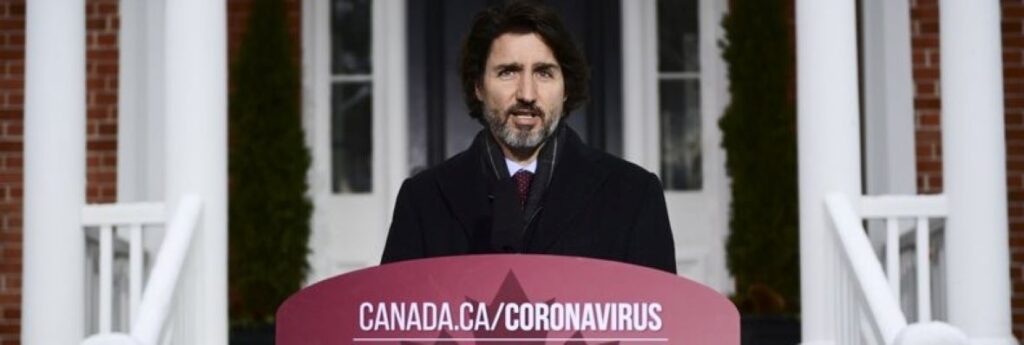Canada’s new tighter border controls will come into effect of Feb. 22, the government announced Friday, with the prime minister maintaining that they are not designed to punish travellers, rather to keep “keep people safe.”
Details of previously announced protocols, which require new arrivals into a mandatory three-day hotel quarantine – at their own expense – and taking a COVID-19 test when they get here is meant to help ward off new and more transmissible variants of COVID-19, Justin Trudeau said.
Nobody wants a third wave to start, he said, adding, the goal is not to punish people, but to protect and to discourage any non-essential travel.
The government had announced the plan for the new border controls last month but how they would work, who might be exempted, and how they would be enforced was laid out Friday.
All those coming into Canada for non-essential reasons were already required to quarantine for 14 days and, since early January, air travellers have had to show proof of a negative COVID-19 test before boarding their Canada-bound flights.
That requirement is also set to be applied at the land border as of February 15, though the three-day hotel quarantine does not apply. However, beginning Feb. 22, those arriving via the land border must also take another COVID-19 test at the end of their quarantine.
Public Safety Minister Bill Blair said less than five percent of those who cross the land border are non-essential, one reason why the hotel stay is not required for those who enter by land.
Health Minister Patty Hajdu added that vaccinated Canadians will not be exempt because research is still not clear on whether those vaccinated can still transmit the virus to others.
The forced quarantine in a government-approved hotel for air travellers could be followed by a stay in a government-approved isolation facility should they test positive for COVID-19. Those who test negative can continue on to their previously arranged quarantine location.
The cost of the hotel stay, including the COVID-19 test, transportation and meals, could be as much as $2,000, the government had previously said.
Travellers will be able to book their government-authorized stay starting Feb. 18.

